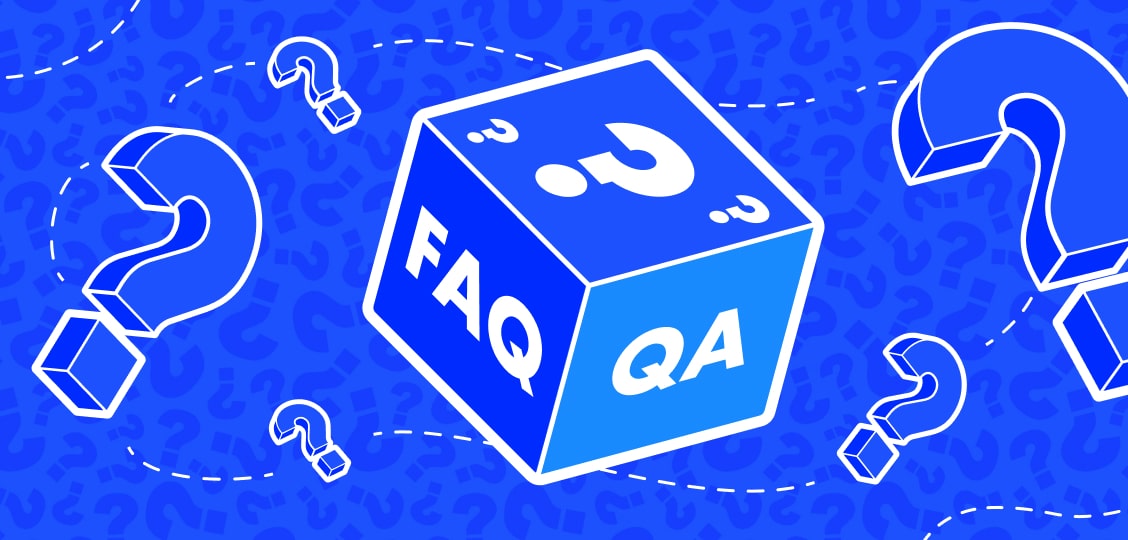Frequently asked questions about software QA services
1.
Do I need to hire QA engineers for my project?
Yes, certainly. QA is a key
software development
stage that allows for ensuring compliance with quality standards and
project requirements, as well as the necessary regulations. Using
software QA services, you will prevent potential bottlenecks that
comprise performance issues and security vulnerabilities. As
software failures may cost thousands and millions of dollars, it is
crucial to focus on QA for cost savings and increased trust in your
products.
2.
Why should you engage QA experts from the project start?
As a rule, QA experts are involved in every stage of the software
development life cycle. The task of a software QA team is to verify
that each step—customer needs analysis, work planning, design,
programming, testing, deployment—is performed right.
In addition, QA professionals make sure that software engineers
follow
best practices to deliver the highest solution quality.
By engaging QA specialists from the project start, you will improve
team collaboration, prevent potential issues, and increase product
success chances.
3.
What are the well-known examples of software failures?
Starbucks
In 2015, Starbucks lost millions in sales because of a major
computer system failure that was caused during a daily system
refresh. Stores were not able to carry out payment transactions. At
some point, many coffee houses were giving drinks free of charge. As
a consequence, 60% of cafes in the US and Canada were forced to
close until the problem was addressed.
TSB Bank
Another example is a massive online banking outage that took place
after the software upgrade in April 2018. This upgrade was planned
to suspend digital banking services for one weekend only but
resulted in months of disruption.
Millions of TSB clients were locked out of their bank accounts for
two weeks. Furthermore, some customers were shown the information
from the accounts of other people. When the new system was turned
on, users also experienced issues trying to sign in.
4.
How does QA allow for saving costs and maintaining reputation?
The use of software QA services allows for preventing data breaches
and performance issues that may lead to significant losses. For
instance, a server running the UK NATS (National Air Traffic
Services) system for flight data processing failed in December 2019.
As a consequence, more than 150 flights from London airports were
canceled while hundreds of flights were delayed. This way, poorly
performed QA or the lack of it can result in not only huge
expenditures but customer dissatisfaction, low retention rates, and
harmed company reputation.
5.
How will you enforce security by hiring a QA team?
The purpose of software QA services is to ensure data security and
protect against various threats that involve hacker attracts,
malware, and viruses. Software quality assurance engineers also
prevent data breaches that may arise after product release.
It is worth noting that at Arateg, our developers also set up
continuous system monitoring to instantly identify potential issues
and automatically restart failed components.
6.
How does QA help ensure compliance with project requirements?
Before project development, the client or software experts write a
technical specification that contains the requirements to solution
design, functionality, use cases, performance, and other aspects.
Thanks to this document, everyone in the team has a clear
understanding of how the future product is expected to look and
operate, as well as what pain points it has to address.
During the software testing process, QA engineers verify that an app
or website aligns with customer requirements listed in the document.
7.
Does QA aim to achieve conformance with the required standards?
Yes. Software quality assurance services aim to ensure conformance
with worldwide accepted standards, for example, ISO/IEC 9126, which
is used to meet a variety of quality internal and external metrics.
In addition, QA experts verify that a software system is compliant
with the necessary industrial and security regulations.
For instance, financial technology companies have to comply with PCI
DSS, ISO/IEC 27001, and GDPR. US healthcare institutions must
achieve compliance with HIPAA and HITECH.
8.
What is the difference between QA and software testing?
The main goal of quality assurance is to deliver performant
solutions that look and behave as intended, comply with client
specifications, as well as meet the necessary standards. QA
professionals make sure that a software system is created properly
and best development practices are used.
Software system testing is a process of detecting bugs and errors.
Testers identify defects and describe them to software engineers for
further debugging. Then, the product is prepared for release. In
fact, testing is a part of software QA services.
9.
Do I need to conduct manual or automated testing?
To find out the answer to this question, let’s have a closer look at
these types of application testing. When conducting manual testing,
software experts play the role of end users to find bugs and errors.
Simply put, they interact with the solution to verify that it
performs as intended with no defects. During this process, testers
generally follow a test plan written earlier.
Automated testing allows QA specialists to reduce the time for
repetitive tasks while increasing test coverage and eliminating
human errors. Employing software tools and programs by testers, it
is possible to save up to 30% on quality assurance services. Thanks
to this, organizations can significantly cut time to market, which
is essential under tight deadlines.
When building a small or medium-sized project, it is recommended to
use manual testing. However, automated testing can become a magic
pill if you need to implement a large-scale project when improved
productivity is crucial. Additionally, automated testing can be
applied to cases that are difficult to check manually.
10.
What types of application testing are used by our team?
Besides manual and automated testing mentioned above, software QA
engineers conduct:
-
Functional testing.
To make sure that each system component and the whole product
operate in compliance with a software requirement document.
-
Usability testing.
QA professionals analyze how users interact with the application
to explore where they have issues. The primary objective is to
ensure ease of use and.
-
Security testing.
Serves to protect software solutions against hacker attacks and
viruses, as well as provide the privacy of sensitive information.
-
Localization testing.
When building a software platform that will be used across several
or multiple regions, it is important to perform localization
testing. QA specialists check conformity with cultural standards
of a particular country, which includes linguistic translation,
app settings, and other factors.
There are many other
types of application testing
that we conduct in our company, involving compatibility,
configuration, feature, and installation testing.


